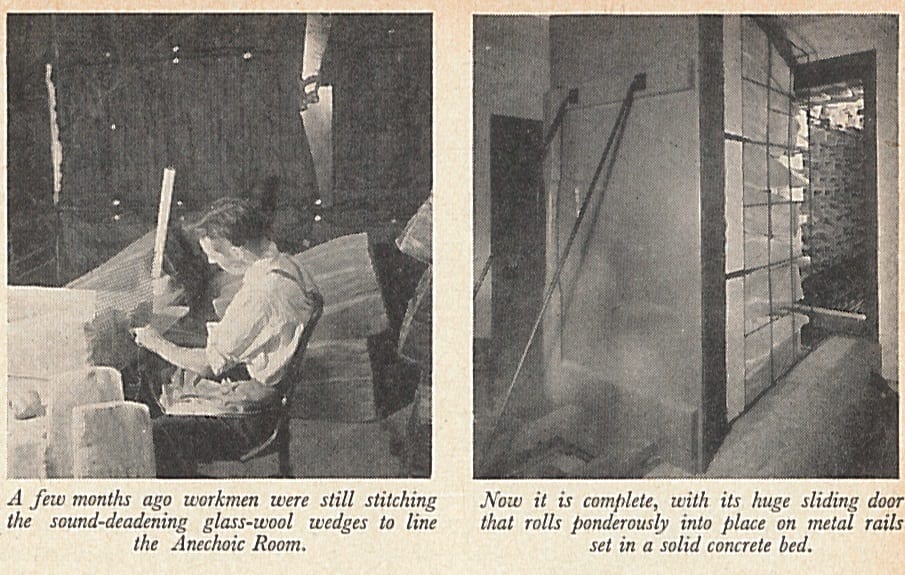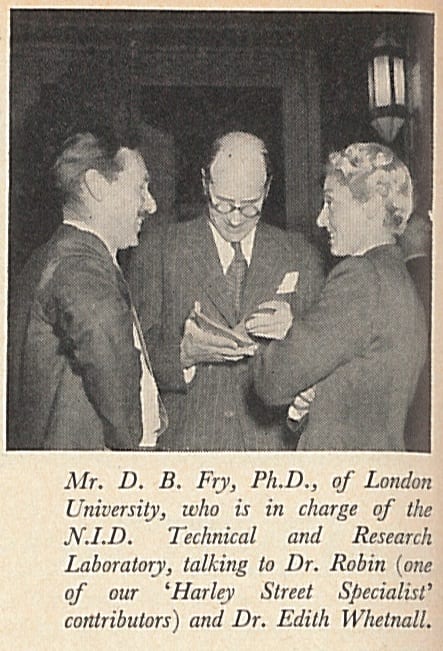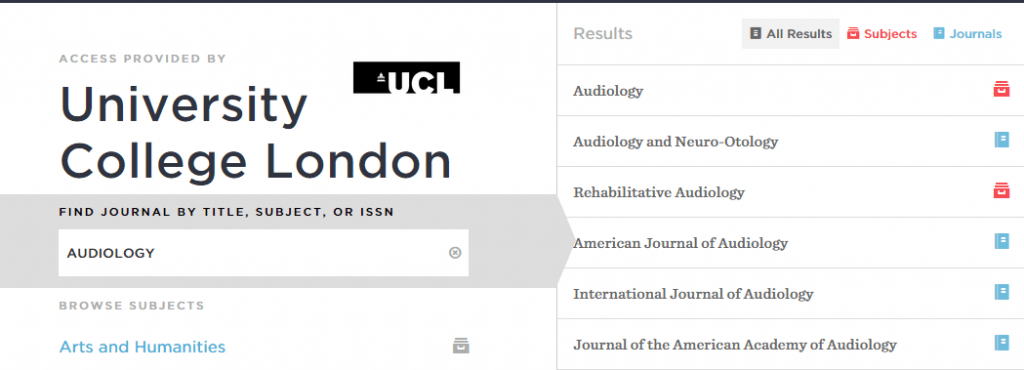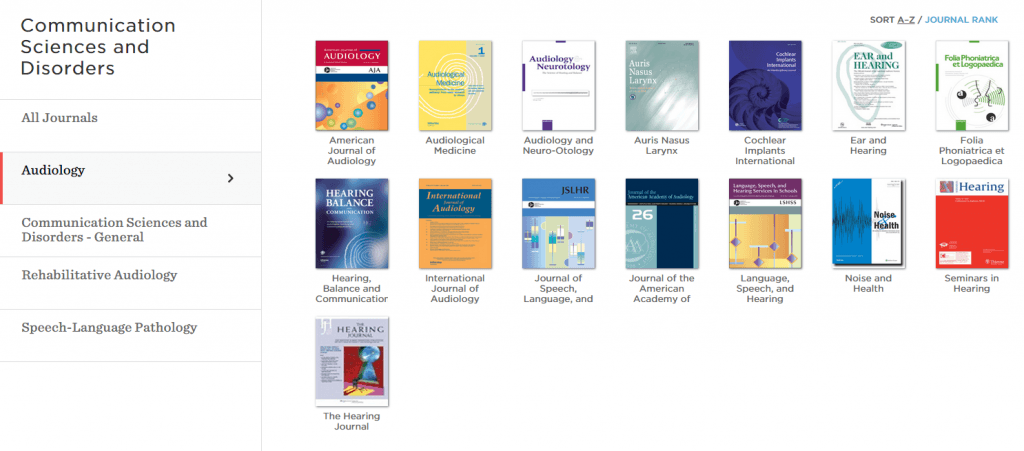“The difficulty with which she then spoke on her fingers … added to her power of expression” Jessie E. Beatrice Ruddock
By H Dominic W Stiles, on 7 April 2017
It is not always easy to find women with a connection to Deaf history until the late 19th and early 20th century. Before that, it seems to me, men predominated in both deaf education and in Deaf society and institutions. Jessie Eva Beatrice Ruddock was one of the young women who changed that in the early decades of the 20th century.
Born in St. Margaret’s on Thames (Isleworth) on the 19th of June, 1889, Jessie was the daughter of a civil servant, Montague Grevile Ruddock (already retired in 1891 aged only 52), and his wife Amy. Jessie was educated at a private school, South Croydon College, and then when her family moved into London, she attended a school in Kensington (Fry, 1913, from which most of the following comes). She then had an attack of influenza aged thirteen,
which left inflammation of both ears, necessitating mastoid operations, and causing a total loss of her hearing. For three weary years Miss Ruddock lay very ill, cared for by a noble mother and sister. Few can imagine the agony of mind experienced by her and her relatives when, after being unconscious for twelve days, it began to dawn on her that the song of the nightingale across the road in Kew Gardens would know her not. The trilling of these beautiful songstresses had previously been her delight.* (ibid)
Her education seemed over, but aged seventeen a friend suggested a career in dispensing. I wonder if her father had retired early through ill-health as the children all seem to have gone into some form of employment, and after her father’s death in 1909 her mother ran a boarding house in Kew.
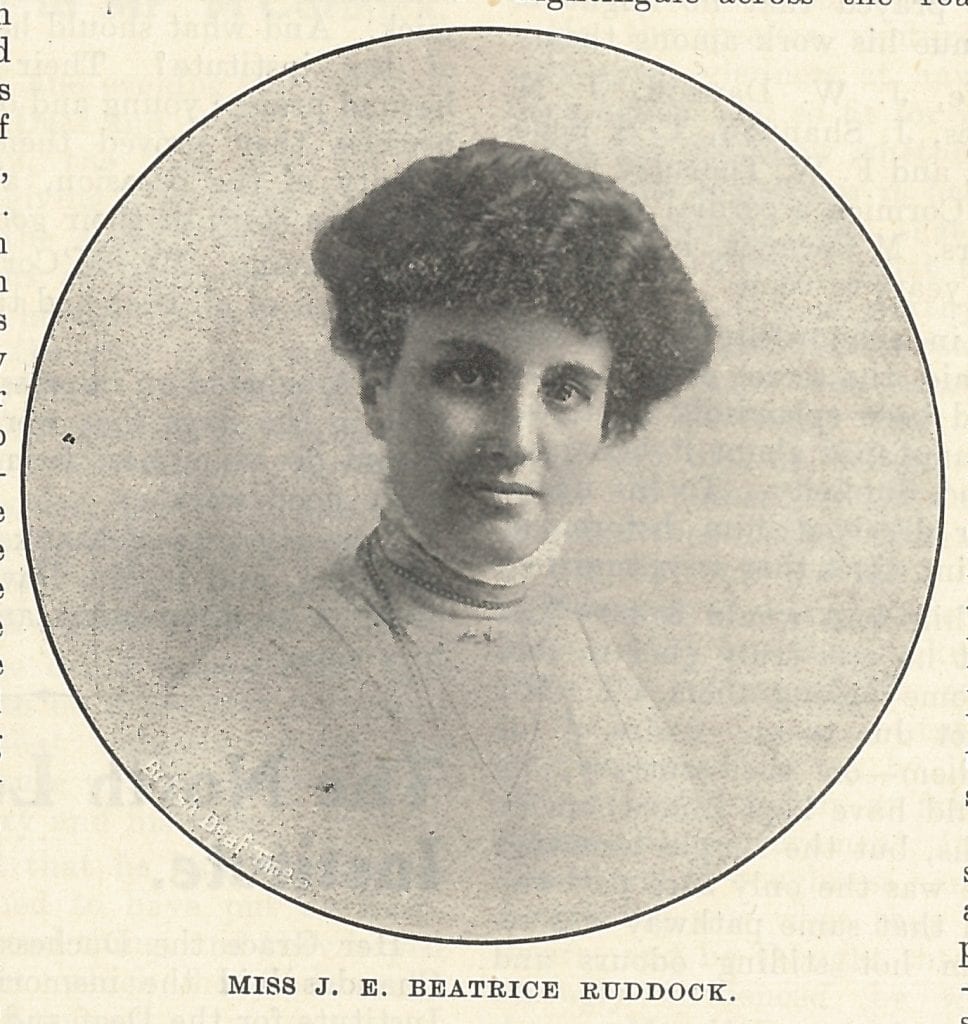 Jessie contacted a Dr. Farrar, who offered to coach her, saying her deafness should be no handicap to the work of a dispenser. Fry tell us that she attended the college, which is now the UCL School of Pharmacy, from 10 a.m. to 5 p.m. then studied at home until 10 p.m. “It was jolly at the College; between fifteen and twenty ladies were there, and we attended lectures twice a day. My chief difficulty was in pronouncing Latin and botanical names.” (ibid) Of 150 candidates, only 23 passed, including Jessie. She held three appointments, with a private doctor, at the Royal Maternity Charity of London Outpatients’ Department, and All Saints’ Hospital. Fry continues, “She yearned for other fields to conquer, however, and ultimately began a course of training as a nurse at Her Majesty’s Hospital, Stepney.” That ended unfortunately when her father became ill and she gave up work.
Jessie contacted a Dr. Farrar, who offered to coach her, saying her deafness should be no handicap to the work of a dispenser. Fry tell us that she attended the college, which is now the UCL School of Pharmacy, from 10 a.m. to 5 p.m. then studied at home until 10 p.m. “It was jolly at the College; between fifteen and twenty ladies were there, and we attended lectures twice a day. My chief difficulty was in pronouncing Latin and botanical names.” (ibid) Of 150 candidates, only 23 passed, including Jessie. She held three appointments, with a private doctor, at the Royal Maternity Charity of London Outpatients’ Department, and All Saints’ Hospital. Fry continues, “She yearned for other fields to conquer, however, and ultimately began a course of training as a nurse at Her Majesty’s Hospital, Stepney.” That ended unfortunately when her father became ill and she gave up work.
In 1913, Maxwell S. Fry wrote an article on Miss J. E. Beatrice Ruddock, for The British Deaf Times. In 1910 she had written to the secretary of the National Deaf Club, having read about it in the newspapers. She wished to know if ladies were admitted. This caused the creation of a ladies section to the club.
Fry was obviously so taken with Miss Ruddock that he really laid it on in his article, recording his impressions when they first met in 1910/11:
Miss Ruddock is lithe of figure, quiet, pleasant and refined. The difficulty with which she then spoke on her fingers – having scarcely mastered our language – added to her power of expression.
[…]
This brilliant and gifted young lady possesses a delicate sensibility, and a quick perception. She is one who grasps the significance that lies beneath the surface of things apparently insignificant, and realises the splendour often hidden in simple lives. Very intelligent, she is possessed of keen instinct. Rich in so many natural gifts, she might have become a scholar. withal, it is the unconscious in her that counts.
It must have worked as, dear reader, he married her in 1915, and they had two daughters, Mary Eileen (b.1920), and Kathleen (b.1917).
We also learn from the article that she enjoyed cycling, had played the piano, and went with her brother to watch Fulham play football. Jessie (or Beatrice as she now seems to have preferred) and her husband later lived in Coventry. Maxwell Stewart Fry, who deserves a blog post of his own, died in 1943. I am sure there is much more that could be added about her. She died aged 90, on the 7th of January, 1980.**
[Note that the 1911 census does not describe here as ‘deaf’. Also, in the 1891 and 1901 censuses she was named as Jessie Ruddock, but after her father’s death she has become Beatrice in the 1911 census.]
*Fry got the the nightingale sex wrong – as with many songbirds, males sing to impress females as well as establishing territory, e.g. Multiple song features are related to paternal effort in common nightingales
** Thanks, yet again, to Norma McGilp!
Obituary. Late Mr Maxwell Fry, Coventry. The British Deaf Times, vol 41, 1944, p.9
Fry, M.S., Prominent in the Deaf World. Miss J.E. Beatrice Ruddock. The British Deaf Times, 1913 p.160-1
1891 Census – Class: RG12; Piece: 1026; Folio: 131; Page: 41; GSU roll: 6096136
1901 Census – Class: RG13; Piece: 50; Folio: 17; Page: 25
1911 Census – Class: RG14; Piece: 3594; Schedule Number: 109
 Close
Close



